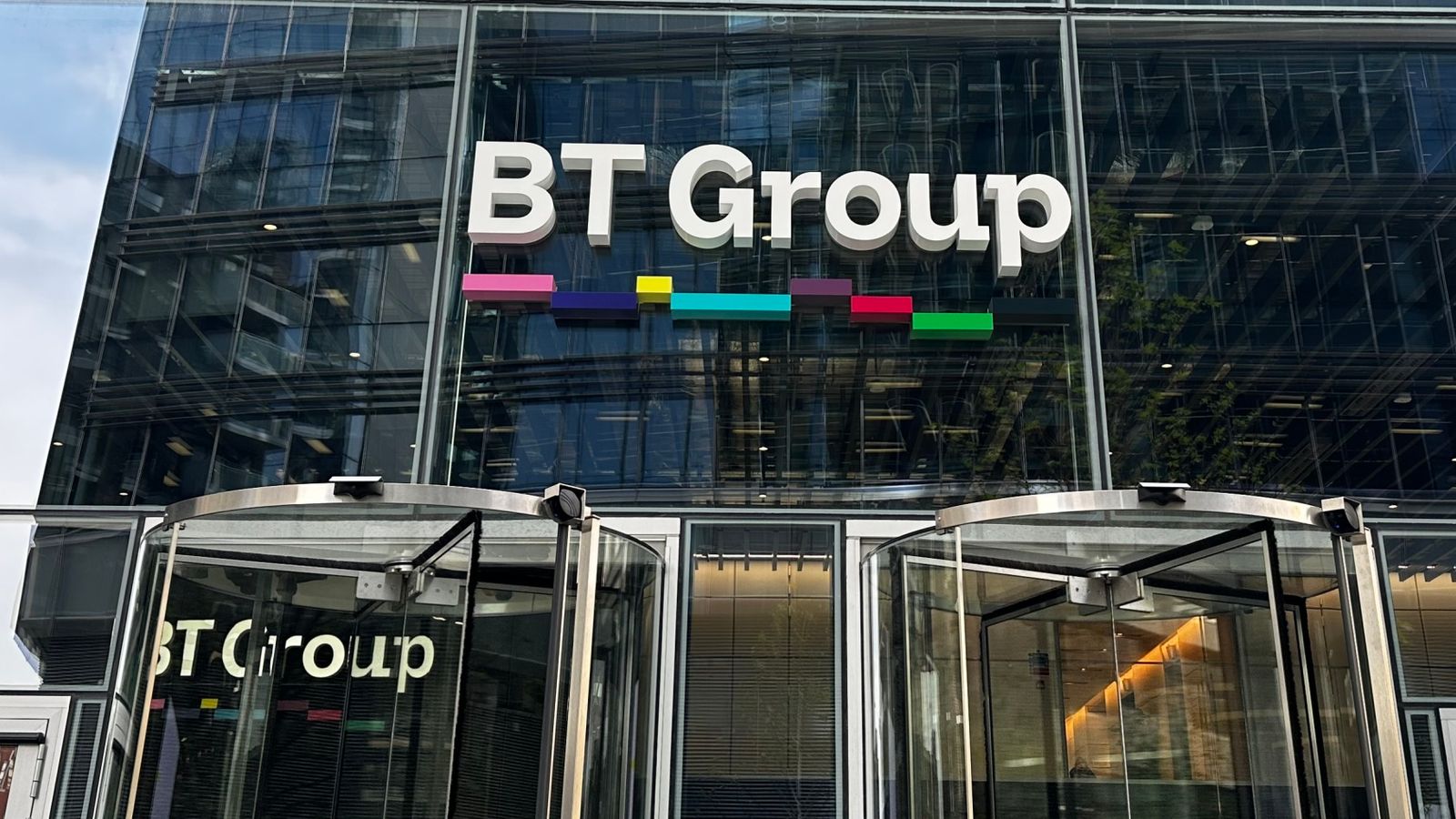Allison Kirkby announced as first female chief executive of BT

BT, the FTSE 100 telecoms provider, has announced its new chief executive, the first woman to hold the post.
It comes after Sky News reported earlier this month that a formal search had begun to replace current boss Philip Jansen as he weighed up a number of job opportunities in the US.
The company said on Monday morning that Allison Kirkby, previously tipped as one of the frontrunners, will take the reins “around the end” of January 2024 “at the latest”.
Ms Kirkby is a former Procter & Gamble executive.
Since 2019 she has also been president and chief executive of Swedish telecoms firm Telia Company, which has 25 million customers across the Nordic and Baltic region.
Ms Kirkby has also been a non-executive director of BT since 2019.
Read more:
Banks launch mortgage support campaign following deal with Hunt
Plan to expand North Sea oil drilling announced
The BT chairman. Adam Crozier, said Ms Kirkby is “a proven leader, with deep sector experience and a history of having transformed businesses”.
The exiting Mr Jansen has had his £1.1m salary frozen until his retirement and his base pay will be maintained at the same level at which it was set when he joined the company in 2019.
Advertisement
Listen and subscribe to the Ian King Business Podcast here
His retirement comes after five tumultuous years in the role.
An investigation was launched into BT after 999 stopped working for dozens of emergency services in June.
Communications regulator Ofcom said it was looking into the UK-wide issue that meant many callers couldn’t get through to police, fire and ambulance services on the usual number.
In May, BT revealed plans to use artificial intelligence (AI) to replace thousands of jobs, significantly reducing the number of people working for the company as part of efforts to cut costs and increase profitability.
It said its “total labour resource” would reduce from 130,000 to between 75,000 and 90,000 by the end of the decade under a “rolling plan”.
The numbers affected – 55,000 at the top estimate – included employees and third-party contractors.
The workforce at the time was 130,000 people including 30,000 non-staff.